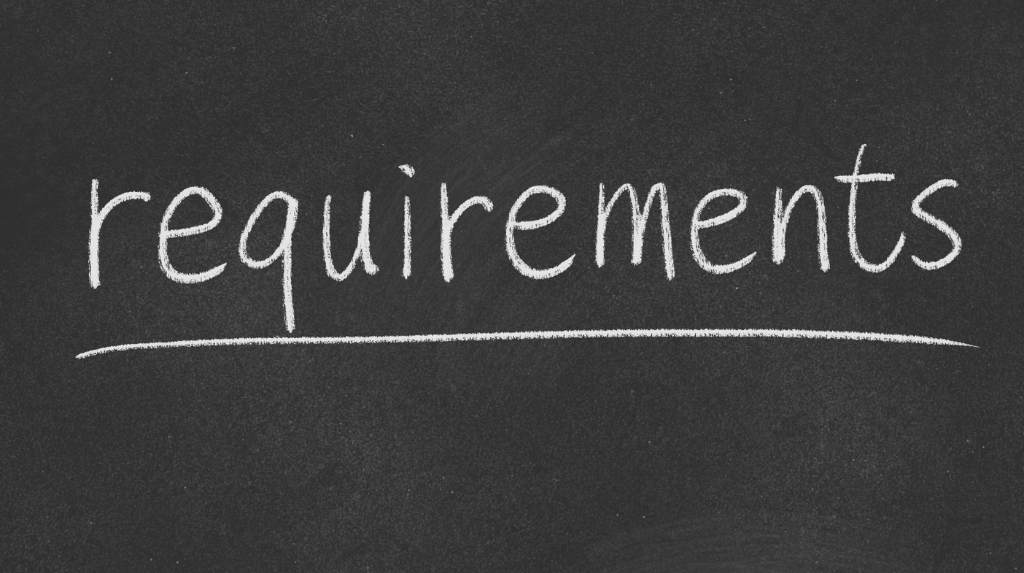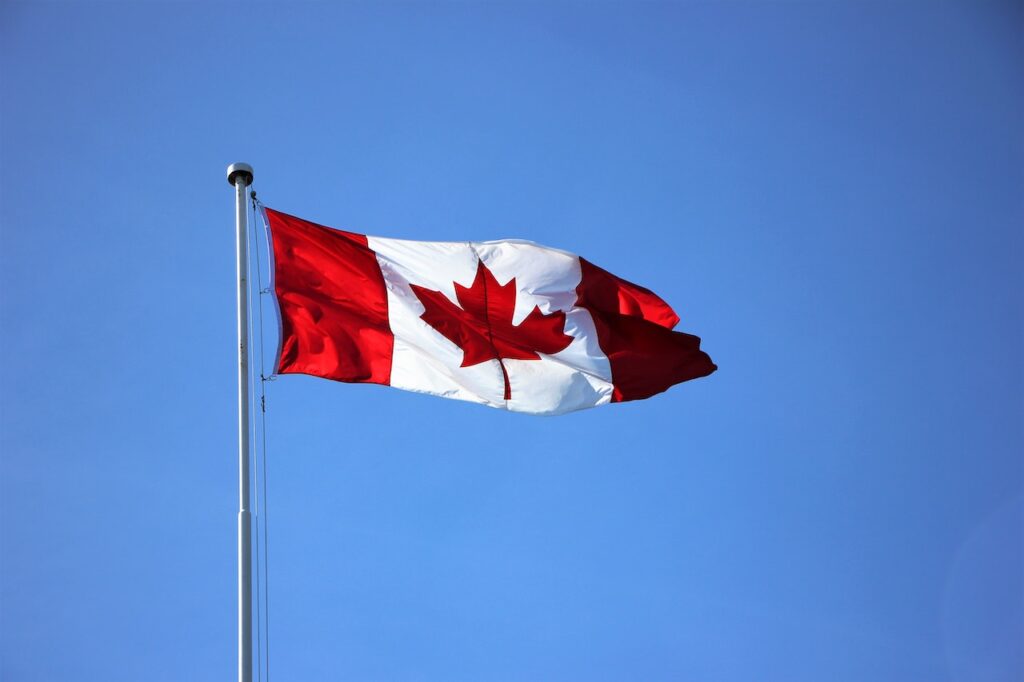A Canada Spouse Visa, part of the Family Class immigration program, allows Canadian citizens and permanent residents to sponsor their spouses or partners for permanent residency in Canada. The primary purpose of this visa is to facilitate family reunification, enabling couples to live together in Canada and build a life together.
Benefits of a Canada Spouse Visa
- Unconditional Permanent Residency: Successful applicants receive permanent residency, allowing them to live, work, and study anywhere in Canada without time limitations.
- Simplified Requirements: Compared to other immigration pathways, the requirements for a spouse visa are generally less stringent.
- No Points System: Unlike many immigration programs that use a points system, the spouse visa focuses on meeting specific eligibility criteria.
- No Language Proficiency Requirement: Applicants typically do not need to demonstrate English or French language proficiency.
- Access to Social Benefits: Permanent residents have access to healthcare, social services, and other benefits available in Canada.
Difference Between Inland and Outland Spousal Sponsorship
There are two main types of spousal sponsorship: Inland and Outland, each with distinct eligibility criteria and processing times.
Inland Sponsorship
- Eligibility: The sponsored spouse must be living in Canada with the sponsor.
- Processing Times: Generally faster processing times, often around 12 months.
- Work Permit: Inland applicants can apply for an open work permit while their application is being processed, allowing them to work in Canada.
Outland Sponsorship
- Eligibility: The sponsored spouse can be living outside Canada at the time of application.
- Processing Times: Processing may take longer, but it can vary widely depending on the applicant’s home country.
- Temporary Visa Option: While waiting for approval, the sponsored spouse can apply for a visitor visa to come to Canada temporarily.
Who is Eligible for Spousal Sponsorship in Canada?
To qualify for spousal sponsorship, both the sponsor and the sponsored spouse must meet specific requirements:
Requirements for Sponsors
- Canadian Citizenship or Permanent Residency: The sponsor must be a Canadian citizen or permanent resident.
- Minimum Age: Sponsors must be at least 18 years old.
- Financial Support: Sponsors must agree to provide financial support for their spouses for three years after they become permanent residents. They should not be receiving social assistance unless it’s due to a disability.
Requirements for Sponsored Spouses
- Age Requirement: The sponsored spouse must be at least 18 years old.
- Genuine Relationship: Both parties must prove that their relationship is genuine and not entered into solely for immigration purposes. This may involve providing evidence such as joint bank accounts, photographs, and communication records.
- Background Checks: Sponsored spouses must pass background, security, and medical checks.
Eligibility Criteria for Spousal Sponsorship
To sponsor a spouse or partner for immigration to Canada, both the sponsor and the sponsored individual must meet specific eligibility criteria. Here’s a breakdown of the key requirements:
Relationship Proof
- Legally Married: The sponsor must be legally married to the applicant, providing a marriage certificate as proof.
- Common-Law Partnership: If not legally married, the couple must have lived together in a conjugal relationship for at least 12 consecutive months. Evidence of shared living arrangements is necessary.
- Conjugal Partnership: This applies to couples who have been in a committed relationship for over 12 months but have faced barriers preventing cohabitation, such as immigration issues.
Financial Requirements
- Ability to Support: The sponsor must demonstrate that they can financially support their spouse or partner without relying on social assistance. This includes providing basic needs such as food, shelter, and clothing.
- Minimum Necessary Income (MNI): While there is no specific income requirement for spousal sponsorship, sponsors must show they have sufficient income or assets to support their spouse once they arrive in Canada. This may involve submitting tax documents or proof of employment.
General Eligibility
Both parties must not have any inadmissibility issues, such as serious criminal records or unresolved immigration matters.
Documents Needed for Canada Spouse Visa Application
When applying for a Canada spouse visa, several documents are essential to support the application:
- Marriage Certificate: A legal document proving the marriage.
- Proof of Relationship: This may include:
- Joint bank account statements
- Lease agreements showing shared residence
- Utility bills in both names
- Photos together over time
- Correspondence (emails, messages) that demonstrates ongoing communication
- Identification Documents: Passports and birth certificates for both the sponsor and the applicant.
- Financial Documents: Proof of income or financial support, such as pay stubs, bank statements, or tax returns.
- Sponsorship Agreement: A signed document that outlines the sponsor’s commitment to support their spouse financially for three years.
Proof of Relationship: How to Demonstrate a Genuine Relationship
Demonstrating a genuine relationship is crucial for a successful spousal sponsorship application. Here are ways to strengthen your application:
- Joint Assets: Provide documentation of shared ownership of property or joint bank accounts to show financial interdependence.
- Photos and Social Media Evidence: Include photos from various occasions together (holidays, family gatherings) and screenshots of social media interactions that highlight your relationship.
- Communication Records: Keep records of phone calls, texts, and emails exchanged over time to illustrate ongoing communication.
- Affidavits from Friends and Family: Letters from friends or family members attesting to your relationship can add credibility.
Step-by-Step Guide to Applying for a Canada Spouse Visa
Applying for a Canada spouse visa involves several key steps to ensure a smooth process. Here’s a detailed guide from the sponsorship application to final approval:
Step 1: Determine Eligibility
Both the sponsor (the Canadian citizen or permanent resident) and the applicant (the spouse) must meet eligibility criteria, including being at least 18 years old and proving the genuineness of their relationship.
Step 2: Prepare the Application
- Gather Required Documents: Collect necessary documents such as marriage certificates, proof of relationship, and financial documents.
- Complete Forms: Fill out the required forms, including IMM 1344 (Application to Sponsor), IMM 0008 (Generic Application Form), and IMM 5532 (Relationship Information and Sponsorship Evaluation).
Step 3: Pay Application Fees
The total fees for spousal sponsorship are approximately CAD 1,050, which includes:
- Sponsorship fee: CAD 75
- Principal applicant fee: CAD 475
- Right of Permanent Residence fee: CAD 500
- Biometrics fee: CAD 85 per person
Make sure to keep the payment receipt as it will be required for your application.
Step 4: Submit the Application
Send your completed application package to the appropriate address. For mail submissions, use:
- Regular Mail: CPC Sydney, P.O. Box 9500, Sydney, NS, B1P 0H5
- Courier Service: CPC Sydney, 49 Dorchester Street, Sydney, NS, B1P 5Z2
Step 5: Medical Exam and Biometrics
After submission, you may be asked to undergo a medical examination and provide biometrics. Ensure you complete these requirements promptly.
Step 6: Interview (If Required)
In some cases, an interview may be requested. Be prepared to discuss your relationship in detail.
Step 7: Final Decision
Once all documents are reviewed and any additional information is provided, you will receive a decision regarding your application.
How to Fill Out Spousal Sponsorship Forms Correctly
Filling out the forms accurately is crucial for avoiding delays or refusals. Here are common mistakes to avoid:
- Incomplete Information: Ensure all sections are filled out completely.
- Inconsistent Details: Double-check that information matches across all documents.
- Missing Signatures: Don’t forget to sign where required; electronic signatures should match your name on official documents.
- Neglecting Additional Information: Include any necessary supplementary forms or documentation that support your application.
Canada Spouse Visa Fees and Processing Times
As previously mentioned, the total fees for a spousal sponsorship application are approximately CAD 1,050.
Processing Times
Processing times can vary significantly based on whether you apply inland or outland. Typically:
- Inland Applications: Approximately 12 months.
- Outland Applications: Processing can take anywhere from 7 to 12 months, depending on the applicant’s country of origin and the complexity of the case.
What Happens After Submitting a Canada Spouse Visa Application?
After submission, your application will go through several stages:
- Acknowledgment of Receipt (AOR): You will receive an AOR confirming that your application has been received.
- Review Process: Immigration officials will review your application for completeness and eligibility.
- Request for Additional Information: If needed, you may be asked to provide more documents or clarifications.
- Medical Exams and Biometrics: You may need to submit medical exams and biometrics during this stage.
- Final Decision: Once all evaluations are complete, you will receive a decision regarding your spousal visa application.
Spousal Sponsorship for Common-Law Partners
Spousal sponsorship in Canada extends to common-law partners, allowing them to obtain permanent residency. To qualify, both partners must meet specific requirements:
Requirements and Proof of Cohabitation
- Cohabitation: The couple must have lived together for at least 12 consecutive months in a marriage-like relationship. This means no long periods apart, except for short, temporary absences due to family obligations or work.
- Age: Both partners must be at least 18 years old.
- Proof of Relationship: To demonstrate cohabitation, couples should provide:
- Joint lease agreements or mortgage documents.
- Shared utility bills or bank statements.
- Photos together during the time of cohabitation.
- Affidavits from friends and family attest to the relationship.
Spousal Sponsorship for Same-Sex Couples in Canada
Canada recognizes same-sex couples under its spousal sponsorship program. The process is similar to that of opposite-sex couples, but there are specific considerations:
Addressing Specific Considerations
- Legal Recognition: Same-sex marriages performed in Canada or legally recognized in the couple’s home country are valid for sponsorship.
- Proof of Relationship: Same-sex couples must also provide evidence of their relationship, similar to heterosexual couples. This includes documentation of shared life and interdependence.
- Cultural Sensitivity: Applicants may face unique challenges based on societal attitudes toward same-sex relationships in their home countries. Providing context and additional documentation can help address any concerns.
How to Sponsor Your Spouse While Living Outside Canada
Canadian citizens or permanent residents living outside Canada can still sponsor their spouses through the outland sponsorship process.
Outland Sponsorship Process Explained
- Eligibility: Ensure both partners meet the eligibility criteria for sponsorship.
- Gather Documentation: Collect necessary documents, including proof of the relationship, financial support, and identification.
- Complete Application Forms: Fill out the required forms accurately and completely.
- Submit Application: Send the completed application package to the appropriate visa office based on the applicant’s country of residence.
- Processing Times: Be aware that processing times can vary significantly depending on the applicant’s location.
What to Do if Your Spouse’s PR Application is Denied
If a spouse’s permanent residency application is denied, it can be disheartening but not the end of the road.
Reapplication and Appeal Process
- Review Denial Reasons: Carefully read the refusal letter to understand why the application was denied.
- Address Issues: If possible, gather additional evidence or documentation that addresses the reasons for denial before reapplying.
- Appeal Options: Depending on the circumstances, there may be an option to appeal the decision through the Immigration Appeal Division (IAD). Consulting with an immigration lawyer can guide this process.
- Reapply: If appealing is not an option or does not succeed, consider reapplying with improved documentation and a stronger case.
Spousal Sponsorship for Undocumented or Refugee Partners
Special considerations apply when sponsoring undocumented individuals or those with refugee status:
Irregular Situations
- Documentation Challenges: Undocumented partners may lack standard identification documents. It’s essential to provide any available proof of relationship and cohabitation.
- Legal Status Considerations: Refugees may need additional legal support to navigate their unique circumstances while applying for sponsorship. It’s advisable to consult with immigration experts who specialize in these cases.
Common Reasons for Spousal Sponsorship Refusal
Spousal sponsorship applications can be denied for various reasons, and understanding these pitfalls is essential to avoid them. Here are some common reasons for refusal:
Insufficient Relationship Proof
One of the most frequent causes of denial is inadequate evidence demonstrating the genuineness of the relationship. Immigration officials require comprehensive documentation to confirm that the relationship is legitimate and not solely for immigration purposes. To avoid this pitfall, ensure that you provide:
- Joint financial documents: Bank statements, tax returns, or joint ownership of property.
- Proof of cohabitation: Lease agreements or utility bills in both names.
- Communication records: Emails, chat logs, and call logs that show ongoing communication.
Tips for Writing a Strong Relationship History Letter
A well-crafted relationship history letter can significantly bolster your application. Here are some tips to create a compelling narrative:
- Be Honest and Detailed: Describe how you met, your journey together, and significant milestones in your relationship. Include anecdotes that highlight your bond.
- Include Dates and Locations: Provide specific dates for key events (e.g., when you started dating, when you got married) and locations where these events occurred.
- Discuss Future Plans: Mention your plans as a couple, such as where you intend to live and any shared goals.
How to Handle Long Distance During Spousal Sponsorship
Maintaining a strong relationship during a long-distance period can be challenging but crucial for your application. Here are some tips:
- Regular Communication: Schedule regular calls or video chats to stay connected. Use various platforms (e.g., WhatsApp, Skype) to keep the conversation fresh.
- Visit Each Other: If possible, plan visits to spend time together. Document these visits with photos and receipts from activities you did together.
- Share Experiences: Engage in activities together virtually, such as watching movies or playing games online. This helps maintain emotional closeness.
How to Prepare for a Spouse Visa Interview
If required to attend an interview, preparation is key. Here are common questions you may face and tips on how to answer confidently:
Common Questions
- How did you meet?
- What do you love about each other?
- Describe your wedding or significant events in your relationship.
Tips for Answering Confidently
- Practice Together: Rehearse potential questions with your partner to feel more comfortable during the actual interview.
- Be Honest: Answer truthfully and clearly. If you don’t know an answer, it’s better to admit it than guess.
- Stay Calm: Take a moment to gather your thoughts before responding. It’s okay to pause.
Misrepresentation in Spousal Sponsorship Applications
Misrepresentation can lead to severe consequences, including denial of the application and potential bans from reapplying. Here’s how to avoid issues related to misrepresentation:
- Provide Accurate Information: Ensure all information provided is truthful and consistent across all forms and documents.
- Disclose All Relevant Details: Don’t omit previous marriages or other pertinent information that could affect the application.
- Seek Professional Help: If unsure about any aspect of the application, consider consulting an immigration lawyer or consultant.
What to Expect After Your Spouse Arrives in Canada
Once your spouse arrives in Canada as a permanent resident, there are several key aspects to consider for a smooth transition.
Integration Tips and Accessing Settlement Services
- Settlement Services: Encourage your spouse to access local settlement services, which can assist with housing, employment, and language training. Many communities offer free resources to help newcomers adjust to life in Canada.
- Language Classes: If your spouse needs to improve their English or French skills, enrolling in language classes can be beneficial. Language proficiency is crucial for social integration and job opportunities.
- Cultural Orientation: Participate in cultural orientation programs that help newcomers understand Canadian customs, laws, and social norms.
Can Your Spouse Work in Canada While Awaiting PR?
Yes, your spouse can work in Canada while awaiting permanent residency approval.
Open Work Permits for Sponsored Spouses
- Eligibility for Work Permit: Upon arrival, if your spouse has received a Confirmation of Permanent Residence (COPR), they can apply for an open work permit. This allows them to work for any employer in Canada without needing a job offer.
- Application Process: Your spouse can apply for the work permit online or at a Service Canada office. It’s advisable to apply as soon as possible after arriving.
Rights and Responsibilities of a Spousal Sponsor
As a sponsor, you have specific rights and responsibilities:
Financial Obligations
- Support Commitment: You are legally obligated to provide financial support for your spouse for a period of three years after their arrival. This includes basic needs such as food, shelter, and clothing.
- No Social Assistance: During this period, you must not rely on social assistance unless it is due to a disability.
Time Commitments
- Communication: Maintain regular communication with your spouse to support their adjustment process.
- Documentation: Keep records of any financial support provided and ensure compliance with the sponsorship agreement.
Pathway to Citizenship for Sponsored Spouses
After your spouse receives permanent residency, they may eventually apply for Canadian citizenship.
Requirements and Process After PR Approval
- Residency Requirement: Your spouse must reside in Canada for at least 1,095 days (three years) within the five years preceding their application.
- Language Proficiency: Applicants aged 18 to 54 must demonstrate adequate knowledge of English or French.
- Application Submission: Once eligible, your spouse can submit their citizenship application through the IRCC website or by mail.
- Citizenship Test and Interview: After applying, they may be required to take a citizenship test and attend an interview.
Updates on Timelines and Eligibility
In 2024, the processing times for spousal sponsorship applications have extended, with an average wait time of 12 months. This change is primarily due to increased application volumes and more stringent verification processes. Eligibility criteria have also tightened, particularly concerning financial requirements. Sponsors must now demonstrate a higher minimum necessary income over the past three consecutive years, reflecting rising living costs in major urban areas like Toronto and Vancouver.
New Programs and Stricter Requirements
The Canadian government has introduced stricter measures to combat fraudulent applications. Applicants must provide extensive documentation proving the genuineness of their relationship, including joint financial records, travel documents, and evidence of consistent communication. Additionally, there is a renewed emphasis on verifying relationship histories, especially for couples from regions where fraudulent marriages are more common.
Impact of Canada’s Immigration Policies on Spousal Sponsorship
These changes aim to streamline the sponsorship process while preventing abuse of the system. The increased scrutiny means that applicants must be well-prepared and provide thorough documentation to support their claims. Furthermore, the limited spots available in programs like the Parents and Grandparents Program (PGP) have prompted many families to consider alternatives such as the Super Visa for longer stays.
How Law and Visas Can Help?
At Law and Visas, our team of expert immigration consultants is here to make your travel to Canada straightforward and successful. Whether you’re applying for a Spouse Visa, Permanent Residence, Visitor Visa, or Study Visa, we handle every step from preparing your application to gathering the required documents.
Our immigration Consultants and Lawyers ensure that your application meets the highest standards, with no details missed. We’ll also keep you informed throughout the process and coordinate with the immigration office or embassy on your behalf.
Law and Visas has a strong record of helping clients secure the visas/permits they need in Canada. Call us today at +234 812 5505 986 to learn how we can assist you.





